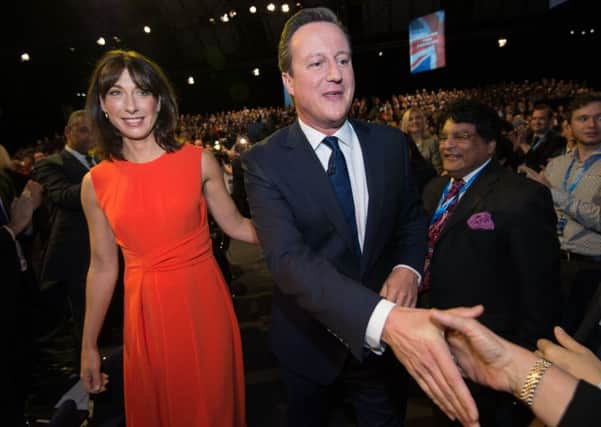Analysis: Party conference season report card


Conservatives
Having won a majority for the first time at a General Election since 1992, the Conservatives had most to look forward to from the 2015 conference season.
Shorn of their obligations to negotiate every measure with a coalition partner, Ministers were able to use platform speeches to set out a Conservative agenda for Government.
Advertisement
Hide AdAdvertisement
Hide AdThe main risk facing the party was a sense of triumphalism but that was just about kept in check.
And David Cameron’s speech successfully moved the party on from its “long term economic plan” mantra to a broader social agenda that seeks to capture the centre - or common as the Conservatives insist - ground.
But you don’t have to look to far to see how clouds could soon appear on the horizon.
The Prime Minister will be under pressure to deliver meaningful reforms in his EU membership discussions and even that will not be enough to satisfy parts of his party determined to leave regardless.
Advertisement
Hide AdAdvertisement
Hide AdAnd any sense Mr Cameron’s new social agenda will inevitably trigger fresh speculation over whether his self-imposed departure in 2020 will be brought forward.
Labour
It could have been a bloodbath but having looked into the abyss Labour decided to enjoy a sunny few days at their conference in Brighton instead.
The Corbynistas who elected the party’s new leader and the party’s parliamentary party, which overwhelmingly backed other candidates, managed to co-exist based on both sides enjoying the energy generated by the huge increase in membership produced by the leadership race, their shared dislike for the Government and agreements to disagree on major policy areas.
However, when the party leader gets himself into a position where he suggests he’d respect the decision of his MPs to back the renewal of Trident but also asserts that as Prime Minister he would never press the red button, it is clear the fragile truce can only hold for so long.
Advertisement
Hide AdAdvertisement
Hide AdThe ‘new politics’ may allow all parts of the party to have their voices heard but if it is serious about winning elections decisions will have to be taken and positions adopted.
For Jeremy Corbyn that will often mean a choice between pleasing the supporters who gave him such a resounding victory or adopting policies that senior colleagues believe could put Labour back into power.
Liberal Democrats
Ahead of the Lib Dem gathering, the jokes were of the “are they meeting in conference centre or a taxi?” variety following the party’s mauling in May.
Despite their hugely diminished numbers of MPs, the party managed to present itself as a credible voice in British politics and it was clear that many Lib Dems feel Labour’s election of Jeremy Corbyn as leader leaves political ground for them to occupy.
Advertisement
Hide AdAdvertisement
Hide AdThere were signs too that Nick Clegg’s drive to turn the Lib Dems from a party of protest to a party of government may have taken root as new leader Tim Farron refused to distance himself from its role in the coalition.
But there is no escaping the fact that recovery not just from the General Election but disappointing local elections in previous years will be a long term project.
UK Independence Party
Delegates at the party’s annual conference in Doncaster were surprisingly bouyant despite the General Election failing to deliver the Westminister breakthrough they had hoped for.
The Conservative victory has at least guaranteed the EU membership referendum Ukip has long called for and leader Nigel Farage made clear that is where he wants supporters’ energy directed.
Advertisement
Hide AdAdvertisement
Hide AdWhat remains unresolved is what role Ukip and its leader will have in the ‘No’ campaign. Unequivocally the face of euroscepticism in Britain and one of the few politicians to have widespread recognition, Mr Farage has a major role to play and in Doncaster he made clear that he would be putting himself centre stage whether others wanted him there or not.
And there are plenty who fall into the ‘not’ category including, it would appear, Ukip’s only MP Douglas Carswell, who fear Mr Farage will alienate the middle-ground voters needed to win the day.